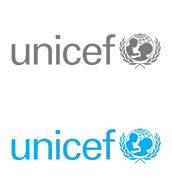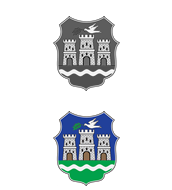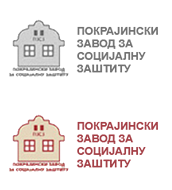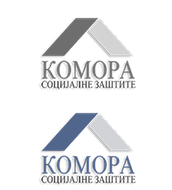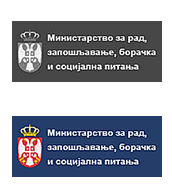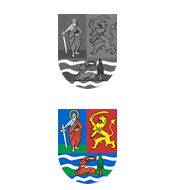MINIMAL STANDARDS
Standards for child protection in foster familiy
(taken from Rulebook on Fostering)
1.) Conditions in terms of space and equipment in a foster family
Living space and equipment in the foster family must meet the average family flat equipment according to the number of household members.
Living space for a child in foster care should enable life together with the child as a member of the foster family. The structure and size of the dwelling must meet the needs of all family members in terms of adequate space for the living room, sleeping area, kitchen and dining area and a bathroom.
Foster families living space must meet the following requirements:
1) that in a populated area where the developed traffic and other connections and communications;
2) that is connected to the electrical and telephone network;
3) that is connected to the public water supply, that is, provided the supply of hygienically clean running water;
4) that is connected to the public sewage system or a properly constructed septic tank;
5) that provided heating.
Space for a child in foster care should meet the following requirements:
1) have a separate room or share a room with a child of the same sex, having at least 6 m2 surface area per child;
2) to have a separate bed to sleep , a length of 150-200 cm, width 70-90 cm, height 40-60 cm, and the distance between the beds must be at least 70 cm, respectively, for a child up to three years a crib;
3) the bed must have at least two sets of bed linen, pillow and two blankets;
4) to have a separate desk and chair, special shelves for storing school supplies and a closet for storing clothes and shoes and a mirror;
5) that there pushchair for a child aged up to one year;
6) child's room must have a heating body for all-day warm-up;
7) that the space for a child with disabilities, adapted to their needs in terms of access, beds, equipment, supplies and other;
8) room in which resides the child should be equipped and refined in accordance with its age-specific needs and interests of the child, with his active participation in its furnishing.
2) Conditions in terms of meeting the health and developmental needs of the child
Child Nutrition
Foster family is obliged to provide a child in foster care nutrition in accordance with the principles of a healthy diet, depending on his age and health:
1) for a child up to one year, six meals a day;
2) for a child aged over one year, five meals a day (breakfast, lunch, dinner and two snacks).
Foster family is obliged to provide a variety of food in quantity and quality necessary for healthy child development.
Child Health
Foster family is obliged to ensure the child's health and takes care of his health by:
1) provide for regular vaccination of the child;
2) ensure regular monitoring of the child to periodic inspections at an appropriate doctors and dentists;
3) ensure regular monitoring of the child with health problems at an appropriate medical specialist and a proper health treatment and rehabilitation;
4) providing the necessary medicines for the treatment of the child and orthotics;
5) provide adequate child care during illness.
Equipping child with appropriate clothing and footwear
Foster family is required to make regular purchases for child clothing and footwear of appropriate quality, in accordance with the age of the child, in the necessary quantity and types according to the seasons and needs of the child and with the participation of the child in choosing clothes and footwear, and respect his opinions.
Minimum standards of clothing and shoes for a child in foster care that a foster parent buys for one year:
1) two pajamas;
2) underwear - seven pieces;
3) seven pairs of socks;
4) a pair of trousers;
5) two dresses;
6) a pair of summer trousers;
7) six summer blouse - shirt;
8) two summer skirts;
9) one coat (jacket) for the winter;
10) two sweaters;
11) one spring jacket;
12) hat, scarf, gloves;
13) four towels;
14) one sweat suit;
15) one pair of room shoes - slipers;
16) one pair of sneakers;
17) a pair of sandals;
18) one pair of shoes;
19) one pair of boots.
For a child aged up to one year, type of footwear and clothing adapts to its age.
Items for the personal use of a child in foster care
A child in foster care should have personal items - personal hygiene of teeth and body in adequate amounts and in accordance with age and gender.
Foster parent takes care of child's hygiene as well as the child in accordance with his age.
A child in foster care should have the following items for personal hygiene:
1) toothpaste;
2) toothbrush;
3) deodorant;
4) soap;
5) hair shampoo;
6) shower gel;
7) face cream;
8) sanitary pads for girls;
9) shoe polish;
10) shaving set for boys;
11) manicure;
12) comb - a hairbrush.
For a child up to one year old, kind of items for personal hygiene adapts to its age.
Educational needs of the child
A child in foster care, in accordance with their age, should have all the necessary conditions to meet the educational needs, and the needs in the field of cultural, entertainment, sports and recreational activities.
Foster parents are required to follow the preferences and interests of the child, foster its development, as well as to regularly go to PTA meetings in kindergarten, school and clubs which the child attends and provide conditions at home for the child's socializing with peers and encouraging social development of the child.
In accordance with the age of the child foster parent provides:
1) adequate toys;
2) textbooks and school supplies;
3) reading and other books;
4) school bag;
5) the necessary equipment for sports and recreational activities;
6) instruments and other equipment for the development of talents and interests of the child;
7) tickets for cultural and sport events and leisure;
8) other, in accordance with the age and needs of the child.


